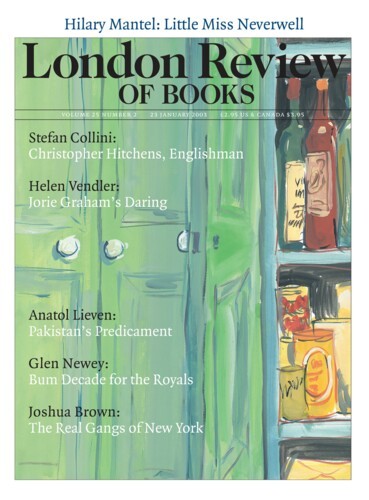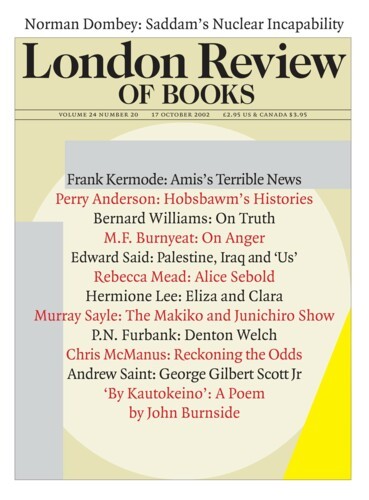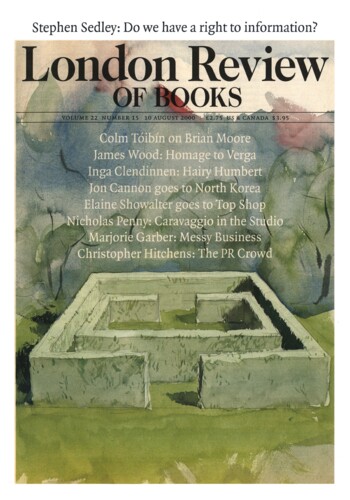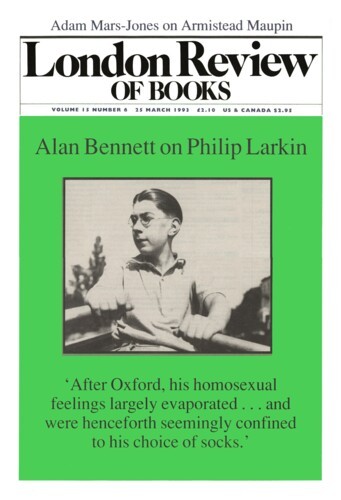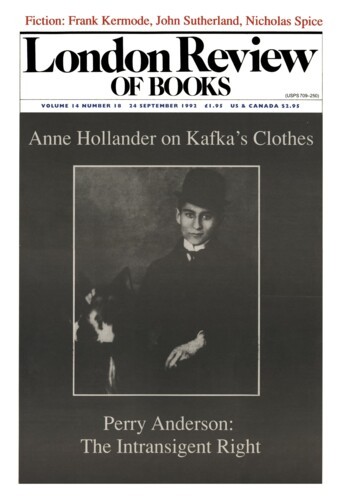Anne Summers
Anne Summers the author of Angels and Citizens: British Women as Military Nurses 1854-1914, is a curator in the British Library’s Department of Manuscripts.
Where have all the books gone?
17 October 2002
Fit to Be a Street Urchin
10 August 2000
Couples
Anne Summers, 25 March 1993
The creation of identity, the invention and re-invention of the self, is as emblematic of the modern era as technological invention. Of the many revolutions our species has witnessed in the last two centuries, the one which has probably contributed most to the development of the ‘plastic’ self has been the process by which, in the West, family size has been permanently reduced. This has led to a decline in the mortality and morbidity of women of child-bearing age, and an accompanying, if not necessarily consequent reduction in the restrictions on their economic, affective and intellectual activities which law and custom once justified on physiological as well as theological grounds. Widespread changes in attitudes to marriage, and to the public and private relationship between the sexes, have followed; the cultural purpose and centrality of heterosexuality is being increasingly questioned.
Doctoring the past
Anne Summers, 24 September 1992
Is there such a thing as the history of the body, and, if so, how might we study it? The idea of the body as a constant, a given, whose components and attributes must always be there to be known or discovered, seems self-evident to the medical patient, the medical practitioner, the micro-biologist of the present day. Much writing in medical history takes it for granted that our current approaches to knowing and describing the body correspond exactly to an objective reality which has been unchanging over time, and that matching the medical treatises and descriptions of past eras against this reality is an unproblematic exercise.
Read anywhere with the London Review of Books app, available now from the App Store for Apple devices, Google Play for Android devices and Amazon for your Kindle Fire.
Sign up to our newsletter
For highlights from the latest issue, our archive and the blog, as well as news, events and exclusive promotions.
